video content provided by YouTube star and skincare expert, Cassandra Bankson
Cystic acne is no joke. It’s one of the most frustrating and emotionally scarring skin conditions out there, and it’s also one of the most common.
Millions of Americans battle with severe breakouts on a daily basis, and despite a load of research on what causes cystic acne, few people actually take the time and proper care needed in order to greatly reduce – or even totally eliminate – their acne issues.
Causes of Cystic Acne
Cystic acne can result when there is an overproduction of sebum in the skin, to an extent where the oil glands become quite hard and swollen.
Understanding what underlying factors are causing your cystic acne is extremely important in determining the most effective cystic acne treatment for your own unique skin care needs. If you’re aware of the root causes of your breakouts, you’re positively going to be able to treat them better.
The problem, however, is that there are a myriad of different cystic acne causes which you may fall victim to all at once.
By making a list of the most likely causes of your skin issues, you can create a strategic plan-of-attack that will address potential solutions one by one. For example, if you believe that an overabundance of skin-borne bacteria is causing your acne, you can go to the doctor for a prescription of antibiotics or try the tea tree oil cystic acne cure. If that doesn’t clear it up, try cutting out milk from your diet. One-by-one, you can eliminate all of the possible causes and find the proper cure that works for you.
You can begin experimenting with cystic acne treatments as soon as you understand what causes cystic acne. So go on, and read ahead. I know it’s a little long, but I promise – it’s worth it. Because let’s face it: cystic acne is extremely frustrating.
There are a number of factors which can cause cystic acne. It may be your hormones, it may be your styling products, it may be stress, or it may be because you have just started taking a new medication.
The following are some main answers to what causes cystic acne in adults:
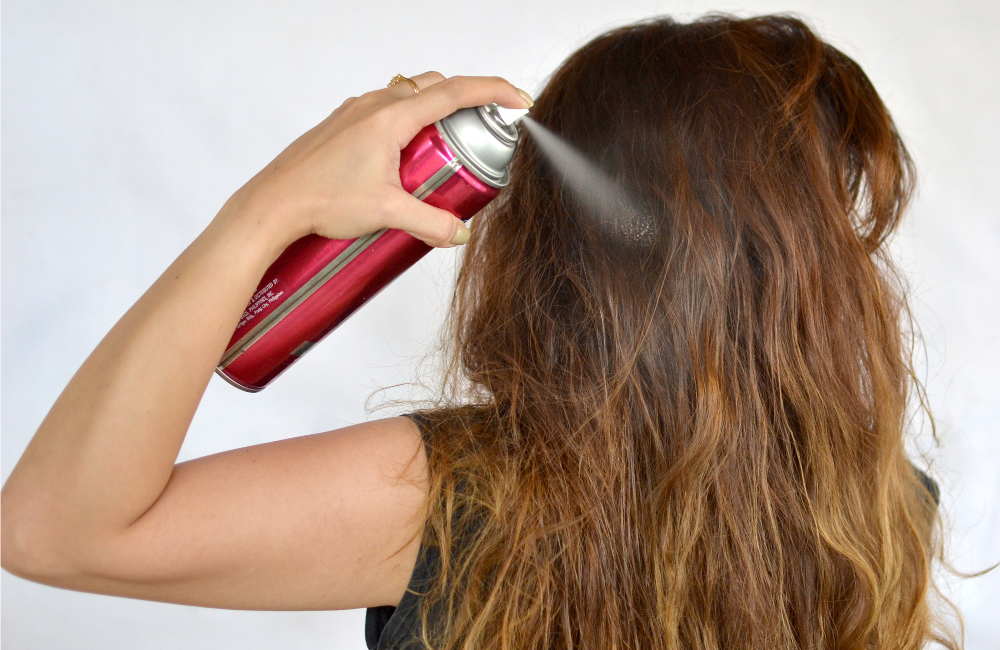
Hair Styling Products:
Breakouts which are caused by hair-styling products are quite common. There’s a high chance that cystic acne can form due to the large numbers of oil-based chemicals present in the products. Famous dermatologist, Richard Fried, M.D., Ph.D., and the author of Healing Adult Acne sums it up the best: “Styling products put oil in your forehead which traps in the acne-causing bacteria.”
These clogged pores then become inflamed which ultimately what causes cystic acne by resulting in pus, redness, blackheads, and whiteheads along the forehead and hairline. Your hair style can also play a huge role. For example, bangs can worsen acne by keeping the skin-clogging hair products close to your forehead. But in the end, no matter how hard you try to keep it off, the styling product you use in your hair will inevitably make its way to your face.
To minimize the chances of developing severe acne from hair styling products, you should apply the gels or liquids with your hands and keep them away from your hairline as much as possible. You should also use a moist washcloth and clean your forehead and face immediately after applying any hair products.
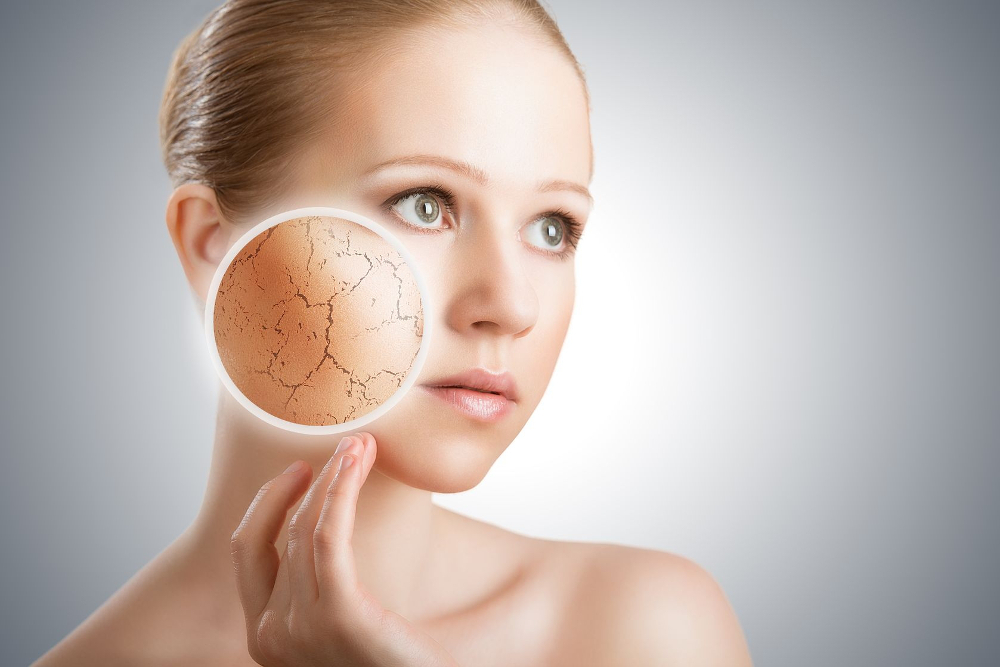
Disturbed Functioning of the Skin Barrier:
You become extra vulnerable to acne when your skin is overly dry or irritated. When you have poor skin barrier functionality, the skin simply isn’t strong enough to protect and keep itself healthy. This is generally one of the main reasons of what causes cystic acne in people with dry skin, even though acne is most commonly associated with oily skin.
This is also a reason why some people can feel an improvement in their skin after using no medications or treatments at all for a few days. You can develop cystic acne through irritation when you do too much to your skin, such as over-exfoliating or trying to pop existing cystic pimples.
You should use gentle facial care products so the natural moisture isn’t stripped away from your skin. Also take care that you don’t use exfoliating scrubs too frequently because they can damage the skin too. If you want your skin to get better, you have to give it the opportunity to recover.
Taking proper care of your skin is a must, and make sure that you’re paying extra attention to what your skin is trying to tell you. Many of the most effective acne treatments instruct you to apply creams and lotions twice a day, but you should never do that if you notice your skin getting irritated – this is another contributing factor to what causes cystic acne.
If you see that you’re disturbing the functioning of your skin’s natural barrier, you should cut your treatment down to once a day or maybe even just three times a week.
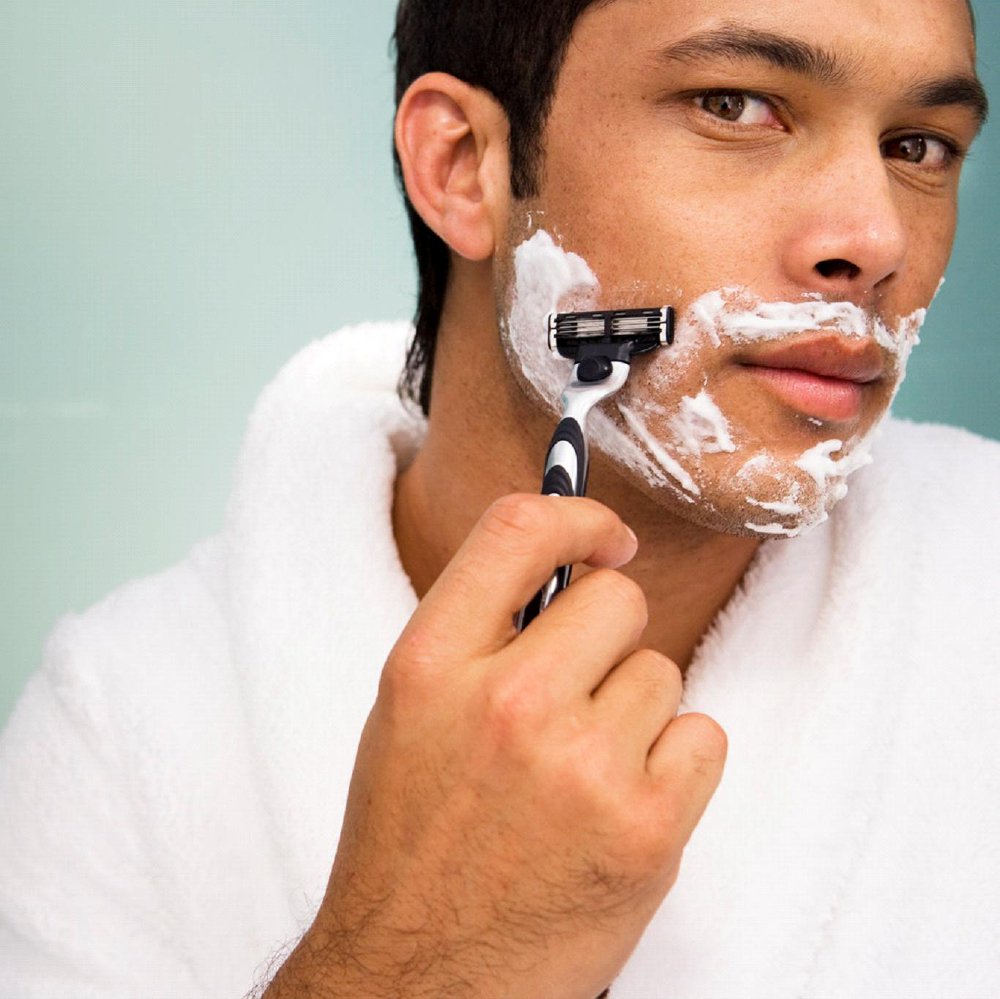
Removal of Facial Hair:
Before you take off any more facial hair, you should know that you’re trading one problem for another. Removing facial hair is one of the main factors of what causes cystic acne. All facial hair removal techniques, including waxing, shaving, and tweezing, make the surrounding tissue swell, sending any bacteria inside the follicle or on the surface deep into the pores.
Dr. Fusco, a famous dermatologist, said, “The topical products put on skin before or after hair removal promote acne and clog pores. You should know that if your bumps itch, it may not be true acne but just the irritation of hair follicles which is creating a rash.”
To help reduce the chances of developing severe acne after removing facial hair, you should apply a 1% hydrocortisone cream before and after de-fuzzing. You should also clean hairy areas thoroughly before removal in order to reduce the amount of bacteria present on the skin.
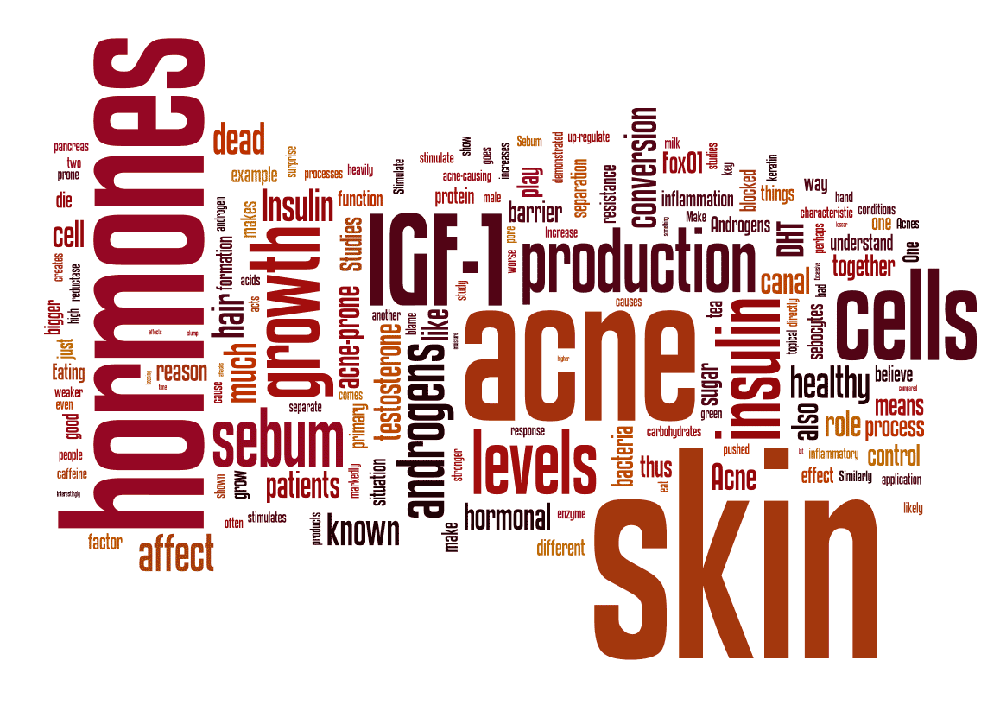
Hormones:
Now it’s time to talk about what causes cystic acne on chin and neck areas. More often than not, this is due to the hormonal changes caused during menstrual cycles, pregnancy, and menopause. This sheds some light on why pregnant women seem to be at higher risk of developing cystic acne. In males, puberty can also have a similar effect on the skin.
Cystic acne caused by hormones usually occurs on the lower face, typically on the chin or around the jaw line. There is no full explanation for the development of these pimples or why they just keep on getting bigger. Women suffer from hormonal cystic acne more frequently than men because of their periods, which as a reoccurring issue can often lead to chronic skin problems.
Men can also experience this type of cystic acne. The primary cause is an increase in testosterone which can be triggered by eating too much soy or protein.
Hormonal cystic acne is often painful and seems to appear without any apparent reason. So if you getting too many unexplained pimples, they may very well be related to a hormonal imbalance.
There are several things you can do to rid yourself of hormonal severe acne. First, make note of your cystic pimples and see if they appear around the same time every month. You can gain a much better understanding of how your skin works by tracking your acne and recording detailed notes about it. If your pimples do appear around the same time every month, hormones are most likely the cause of your cystic acne.
If you believe hormones are at fault for what causes cystic acne with your body, make an appointment with your doctor. You should get your hormones levels checked every now and then just to make sure that they fall within the normal limits. You should also keep a good check on your health because that’s the best way to spot hormonal imbalances before they turn into serious issues – skin-related or other.
There are, however, some acne-causing hormonal sensitivities which don’t show in standard medical tests.
For a solution, try out some topical hormonal treatments. You can also try supplements and contraceptives to balance hormones. Another solution worth giving a shot would be to increase your consumption of omega-3 fatty acids and spearmint tea, both known to help regulate hormones.
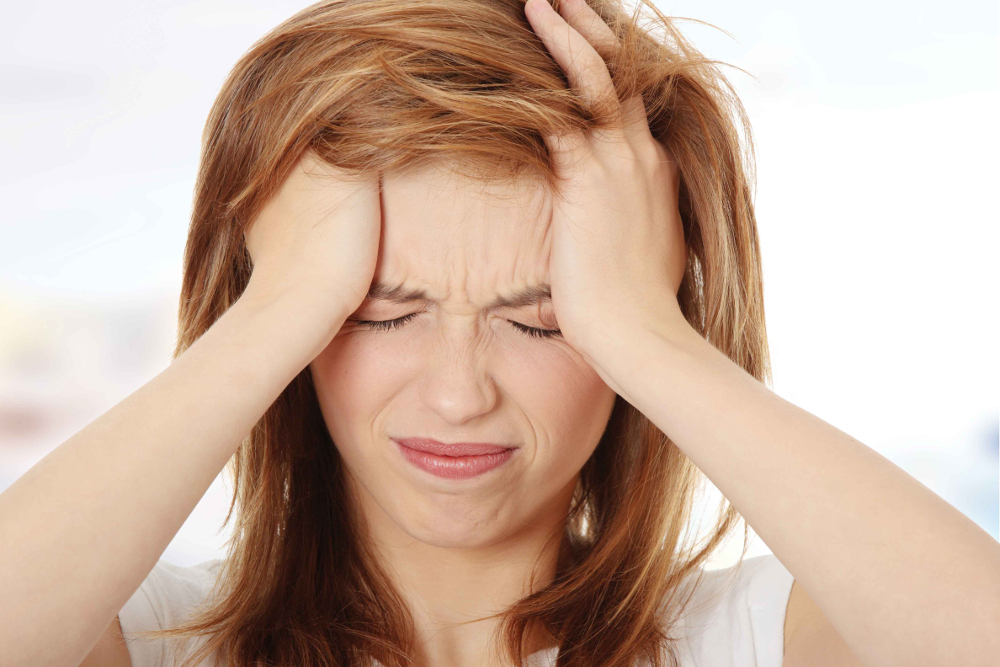
Stress:
Stress can cause havoc on your skin and make existing acne symptoms worse.
I’m not trying to scare you into thinking that you’ll have a breakout every time you’re stressed, because being completely stress-free doesn’t guarantee clear skin either. You just need to understand that constantly elevated levels of stress can definitely have a negative impact on your skin’s health – it’s a proven contributor to what causes cystic acne.
One reason that stress is so dangerous for your skin is that it leads to lack of sleep. Sleep is extremely important for your entire well-being in the sense that it doesn’t just refresh the body: it also repairs it. A lack of sleep doesn’t directly cause cystic acne, but it can make you much more prone to developing severe skin issues than if you were well-rested.
A few great ways to minimize the stress in your life includes exercising, meditating, and taking regularly scheduled breaks during stressful or strenuous activities. You should also try to main your normal nightly routine, as varying from this – even if you still sleep the same number of hours – can still throw off your body’s natural recovery mechanisms.
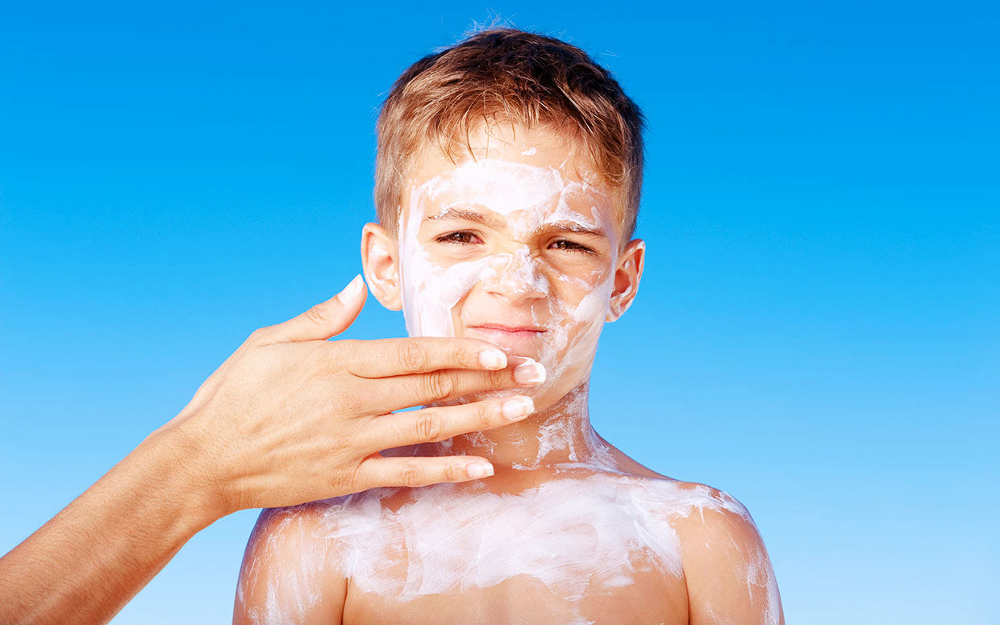
Sunscreen:
If you’re trying to figure out what causes cystic acne on cheeks, you might want to ask yourself what you’re putting on them. For many cystic acne sufferers who spend a lot of time outdoors, the answer may be sunscreen.
There are two types of active ingredients present in sunscreens. The first is a chemical agent which protects your skin from harmful ultraviolet rays by absorbing into your pores, and the second being physical agents which stay on the surface of the skin to shield it from the sun altogether.
The problem with sunscreens, however, is that they contain titanium oxide and zinc oxide, both of which cause you to sweat. This, combined with the fact that sunscreen clogs your pores is often what causes cystic acne in adults who spend a lot of time outdoors.
Solving this problem is actually quite easy – don’t buy the brands of sunscreens which have pore clogging agents in them. It’s better to use products containing less-intrusive ingredients like oxybenzone, octocylene, and avobenzone. You should also go for gel sunscreen over a cream, because they don’t have the same pore clogging properties.
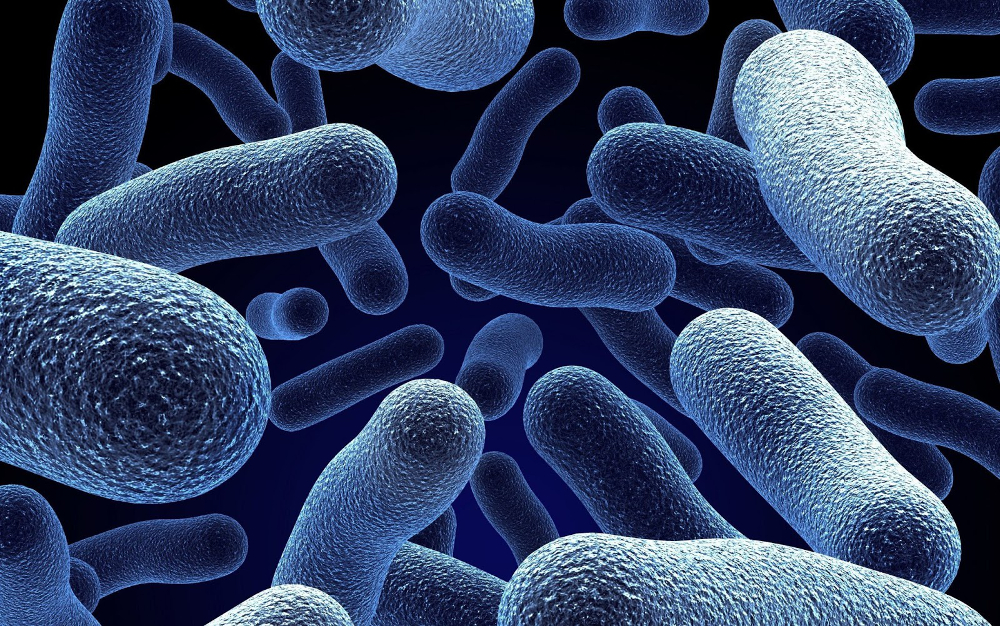
Bacteria:
The most prevalent acne bacteria is known as P. acnes. It is quite common, and most experts agree that if you kill the P. acnes bacteria, cystic acne will go away. P. acnes is most likely what causes cystic acne, whether it is on your face or other parts of the body.
P. acnes feeds on sebum, the secretion of our skin’s sebaceous glands. If your glands are producing too much sebum, you have acne-prone skin. Occasionally, this sebum gets trapped within hair follicles alongside of bacteria, creating a fertile location for the growth of P. acnes.
The biggest problem with P. acnes is that treating individual outbreaks does nothing to cure severe acne altogether. Even if you temporarily eliminate what causes cystic acne in one area, it continues to live all over the surface of your skin.
Bacteria can easily be killed by oral antibiotics. However you should be cautious before taking oral antibiotics because they can kill both the good and bad bacteria in your body. In severe cases, however, a strong dose of antibiotics can work wonders before starting a new treatment.
Antibiotics will work for a short time but they aren’t a long-term cystic acne solution. The bacteria in your body can build up a resistance after multiple treatments. As a result, an antibiotic regimen should help you clear up your skin, but should by no means be the only action you’re taking towards eliminating cystic acne.
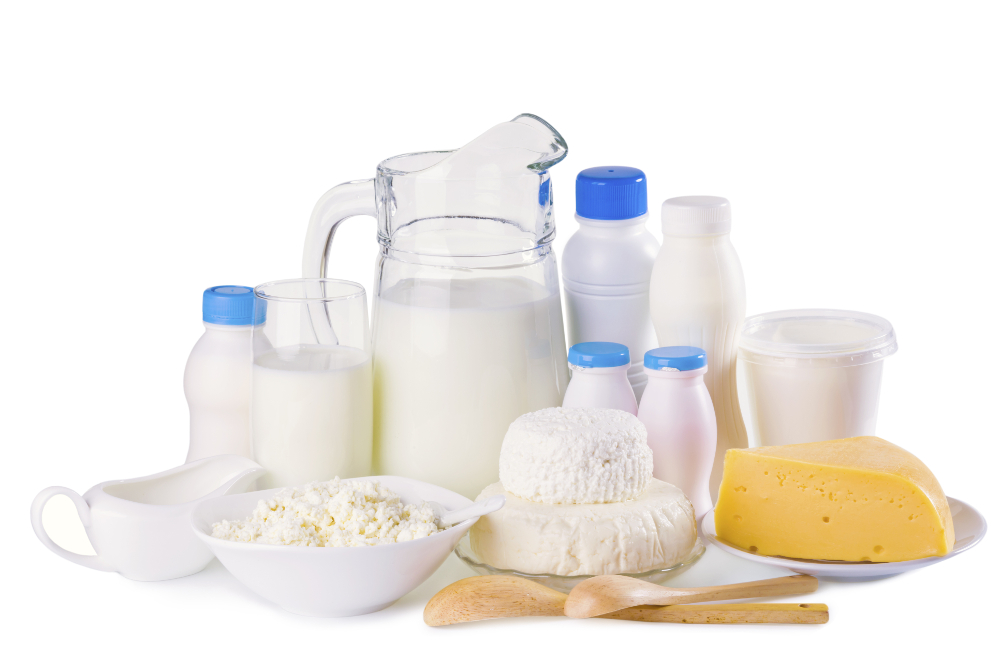
Dairy products:
There’s no denying the fact that dairy products are quite healthy for you, but they are also one of the main causes of cystic acne. You need to keep an eye on your dairy intake if you’re getting breakouts along your jawline, or around your chin and neck areas.
Your skin acts like a secondary excretory system for the body, so when you eat dairy, some of the molecules that are difficult to digest can contribute to what causes cystic acne by being excreted through the skin in the form of cystic pimples.
The best way to find out whether dairy products are one of the main causes of your cystic acne is to exclude dairy from your diet for a minimum of three weeks. If you notice a distinct reduction in blemishes, then you may be well on your way to solving your skin issues.
If cutting out dairy altogether is difficult for you, try to at least cut back your consumption as much as possible during the three week testing period. While you may not get the full effect of remove milk-based products from your diet, you should still notice improvements in your skin.
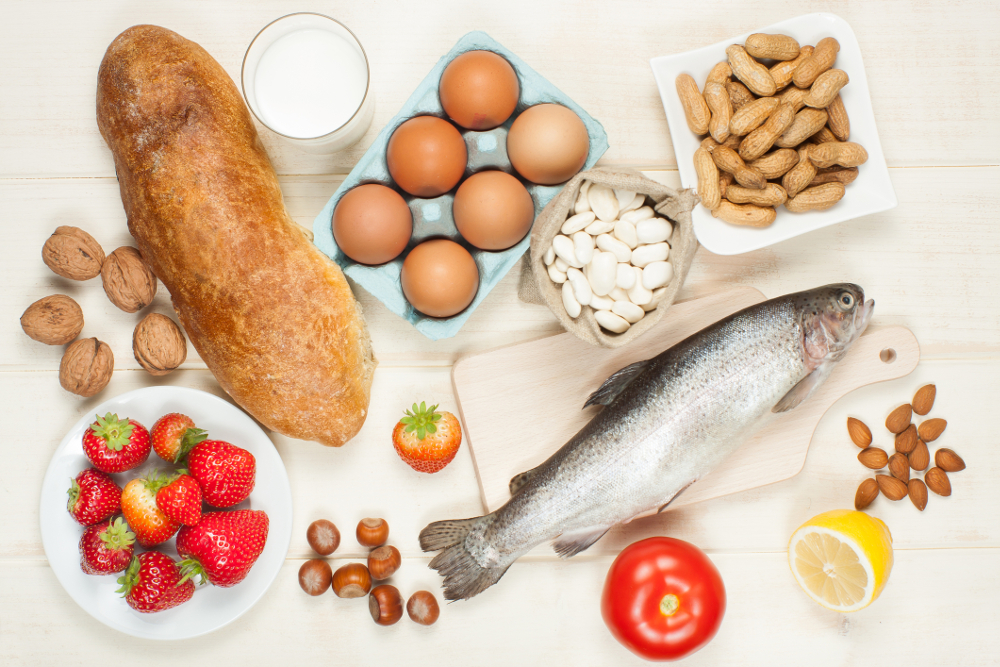
Food Allergies:
Food allergies which cause cystic acne are more common than you think. In fact, food allergies can be one of the biggest factors of what causes cystic acne in adults. Different food allergies such as a sensitivity to dairy, sugar, or soy can make you far more prone to cystic acne.
When you eat something that you’re allergic to, it normally takes between 4 and 5 days for cystic pimples to develop. If you’re noticing acne sooner than this, it likely isn’t the result of a food allergy.
The number one way to definitively find out if food allergies are to blame for your cystic acne is to visit your dermatologist and have an allergy text done. Knowing the dietary triggers of your skin issues can be a huge resource in preventing future breakouts through a modified cystic acne diet.

Cellphones:
This one may come as a shocker to you. Yes, you read it right – cellphones can also cause cystic acne. They don’t directly cause cystic acne, however, but more-so assist it in developing. Cellphones are exposed to bacteria of all kinds through normal, everyday use. When you talk on your phone, this bacteria is getting transferred directly onto your face.
Constantly rubbing a cellphone against your skin can also cause irritation and result in cystic acne.
To prevent phone-related causes of cystic acne, limited your phone use, keep it hands-free, and clean the device’s exterior with an alcohol wipe every so often.
What Causes Cystic Acne in Review
Well there you have it. If you made it all of the way through this comprehensive article, you should already have a much better understand of what causes cystic acne, the prevention steps you can take before it develops, and what to do when you start noticing a problem.
Whether you choose to opt for a professional-style treatment for severe acne or an equally effective cystic acne home remedy, you’re now armed with the knowledge of what causes cystic acne needed to make the best decisions for your skin’s – and entire body’s – health and wellbeing.

